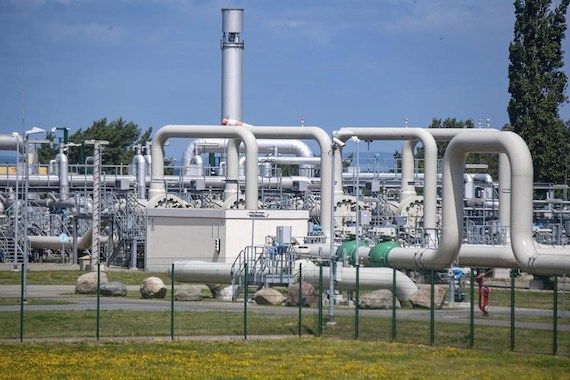Minister Wilkinson confirmed earlier this week that the turbines in question, from Gazprom’s Nord Stream pipeline, are at a Siemens plant in Montreal “that will be refurbished.” (Photo: The Canadian Press)
This text collects all the latest developments about the Russian invasion of Ukraine that day July 11. To find all of our coverage of the dispute, you’ll find it here. so. Some content is self-explanatory and may be difficult to read.
11:00 am | PARIS — French beauty brand Sephora (LVMH) will sell all of its 88 stores in Russia to its local general manager who will take over the business under the name “Île de Beauté,” according to a press release on Monday.
Sephora announced “the signing of an agreement to sell 100% of the shares of its subsidiary in Russia to its local general manager, with the aim of enhancing employee continuity,” according to the press release.
The amount of the transaction was not disclosed, “subject to approval by the relevant (local) authorities, in particular competition authorities”.
Sephora stores in Russia, like all 124 stores of the LVMH group (Louis Vuitton, Dior, Céline, Moët & Chandon, etc.) in the country, have been “temporarily closed” since the beginning of March after the invasion of Ukraine and European sanctions.
The Sephora brand entered Russia in 2016 with the purchase of the “Île de Beauté” brand. In 2022, it employed 1,200 people in 88 stores.
LVMH, which recorded sales of more than 64 billion euros in 2021, does not talk about sales of its brands, but analysts estimate Sephora’s turnover at around 8 billion euros. Russia accounts for less than 3% of the brand’s sales.
Ukraine criticizes sending turbines to Russian pipeline
OTTAWA – The Ukrainian government is asking Canada to reconsider its decision to allow turbines to be delivered to Germany for use in supplying the Russian natural gas pipeline between Russia and Europe.
For Ukraine, Ottawa’s decision to allow the shipment of such equipment sets a “dangerous precedent” that threatens to undermine the economic sanctions the West has imposed on Russia.
In a statement issued late Saturday night, Natural Resources Minister Jonathan Wilkinson said that “Canada will give Siemens Canada a revocable and time-limited clearance to allow its repaired Nord Stream 1 turbines to return to Germany, which will support Europe’s ability to reliably and reliably access. Affordable energy as it continues to shift away from Russian oil and gas.”
Minister Wilkinson confirmed earlier this week that the turbines in question, from Gazprom’s Nord Stream pipeline, are at a Siemens plant in Montreal “that will be refurbished.”
Siemens Energy said last month that Canadian sanctions against Russia in response to the invasion of Ukraine prevented it from returning turbines to Germany.
The Canadian government will finally authorize the delivery of pieces of equipment because they are considered essential to Russia’s Gazprom to supply Germany with gas.
“Without the necessary supplies of natural gas, the German economy will suffer very great difficulties and the Germans themselves may not be able to heat their homes as winter approaches,” the statement read.
On Sunday, Ukraine’s foreign and energy ministers expressed their “deep disappointment” by calling the Canadian decision a “dangerous precedent that violates international solidarity” and “contradicts the rule of law.”
For Ukrainian ministers, Canada’s decision will only “reinforce Russia’s sense of impunity.”
Siemens Energy told the Associated Press in mid-June that Gazprom had begun cutting gas flows because it was unable to operate the turbines that power a compressor station on the pipeline, which is due for maintenance after more than 10 years of service.
German politicians rejected the Russian explanation for the 60% cut in gas flows through Nord Stream 1, saying the equipment should not have been a major problem until the fall and that the Russian decision was a political ploy to sow uncertainty and raise prices.
German Vice Chancellor and Economy and Climate Minister Robert Habeck said he doubted Russia could cite “some small technical details” as a reason not to resume gas deliveries.
The cut in gas supplies comes as Germany and the rest of Europe try to reduce their dependence on Russian energy imports. Germany, which has the largest economy in Europe, gets about 35% of its gas for power generation and electricity generation from Russia.
Last month, Minister Habeck moved ahead with the second phase of his country’s three-phase contingency plan for natural gas supplies, warning that Europe’s largest economy was facing a “crisis” and that winter storage targets were at risk.
Energy company Uniper, the largest importer of Russian gas to Germany, on Friday asked the government for financial help to deal with rising gasoline prices.

“Subtly charming problem solver. Extreme tv enthusiast. Web scholar. Evil beer expert. Music nerd. Food junkie.”

